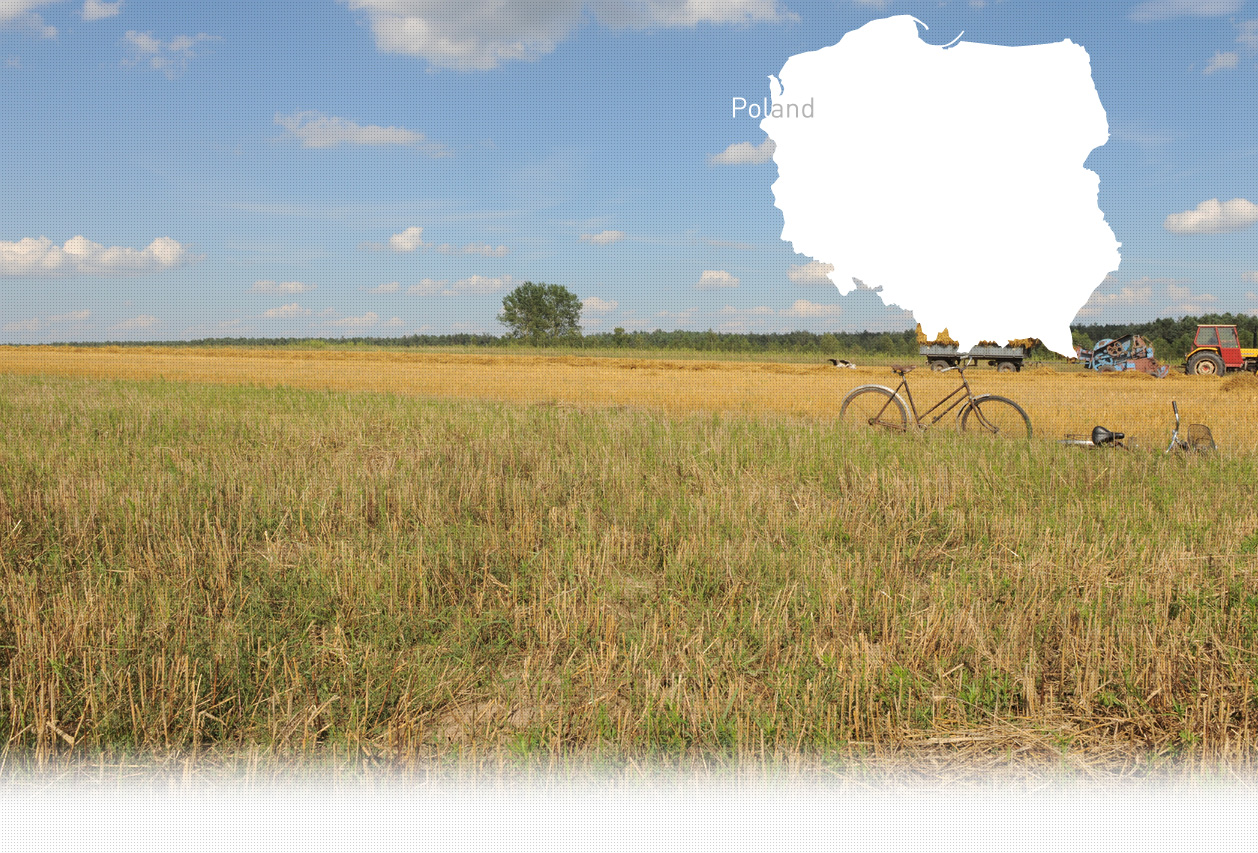

1 Killing site(s)
Janina J., born in 1936: “Before the war, Słomniki was a quiet town. Jews lived alongside us, and in pretty large numbers, really. They had their own shops and businesses. We all lived side by side, Polish and Jewish families. I was young, and I remember their faces, their names. They were our neighbors. Then the war came, and everything changed. I will never forget that day in July when they were taken to the meadows. A transit camp had been set up there, which was just grass and open sky. They gathered the Jews there: men, women, children, the elderly. I was walking along Kolejowa Street with my mother. It crossed the dirt road that led from the meadows toward the fields, on what are now Okrzei and Wiśniowa Streets. That’s when we saw them: a line of carts, each carrying eight to ten people. The carts were driven by local farmers—our own people—from Słomniki. They were taken along that road, through a ravine, to the execution site, which was about 500 meters away. It all happened in a single day. They were shot and buried in a pit. I also know that there was another execution site in the forest near the village of Wesoła sometime later. I didn’t see what happened there, but people spoke about the Jews from Słomniki being shot there. I know that place is commemorated with a monument now.” (Witness N°1267P, interviewed in Słomniki, on September 24, 2021)
Wesoła is a village in the administrative district of Gmina Słomniki, within Kraków County, Lesser Poland Voivodeship, in southern Poland. It lies approximately 20 km (12 mi) north-east of the regional capital, Kraków. There is no known archival evidence confirming the presence of a Jewish community in Wesoła before the war. However, nearby Słomniki—a small town located about 4.2 km (3 miles) from Wesoła—had a significant Jewish population. In 1921, out of 4,800 residents, 1,460 were Jews. By 1937, the Jewish population of Słomniki numbered 1,320. Before World War II, the Jewish community in Słomniki was a vibrant and integral part of the town’s social and economic fabric.
For more information about the Jews of Słomniki, please refer to the corresponding profile.
On September 6, 1939, German forces entered Słomniki, marking the beginning of the town’s occupation. On October 26, 1939, Słomniki was incorporated into Kreis Miechów in the Distrikt Krakau of the General Government.
In mid-August 1942, a temporary transit camp was established near a mill by the Szreniawa River, close to the town of Słomniki. On August 20, most of the town’s Jewish residents were forcibly relocated to the camp, which later also held Jews from nearby towns such as Skała, Miechów, and Proszowice. Between 6,000 and 8,000 people were imprisoned there and held in dire conditions. Many died from starvation, disease, or were killed during the deportation process by Ukrainian and Lithuanian auxiliary police.
Around early September, mass deportations began. While some younger prisoners were sent to forced labor camps, the elderly, sick, and children were murdered on site. Most of the remaining detainees were deported to the Bełżec extermination camp.
After the liquidation of the camp, approximately 200 Jews remained in Słomniki, including members of the Judenrat and individuals in hiding. In November 1942, these Jews—along with captured escapees—were executed by the Nazis in a nearby forest.
According to some archival sources, the Aktion took place in the Chodów Forest. However, other sources indicate that it occurred in the Wesoła Forest near the village of Domiarki, commonly referred to as the “Niedźwiedzki Forest.” This specific location was confirmed in two separate interviews conducted by Yahad research teams with witnesses from the region: Walerian Z. (born 1931) and Janina J. (born 1936). Both independently testified that the killings of Jews from Słomniki took place in this forest near Wesoła, where victims were transported by truck. Today, a monument stands in the forest to commemorate the victims.
Do you have additional information regarding a village that you would like to share with Yahad ?
Please contact us at contact@yahadinunum.org
or by calling Yahad – In Unum at +33 (0) 1 53 20 13 17